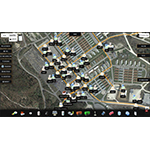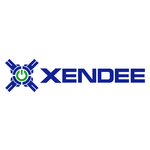
Xendee Releases New Features for Effectively Designing Sustainable Communities, Large Facilities, and Utility-Scale Microgrids
- This feature allows users to generate advanced microgrid designs that reflect real-world positioning and allow the interconnection of multiple microgrid ‘nodes,’ which can each support their own technologies and loads as well as transfer energy.
- The feature will allow users to connect up to 25 technologies, including fuel cells and solar PV, during the microgrid design process and co-locate multiple systems at each node to most efficiently meet the needs of the project.
- Xendee’s optimization software even takes into account cable length, losses through transferring energy, and the most efficient ways to generate and distribute energy from multiple energy sources at all hours of the day.
SAN DIEGO–(BUSINESS WIRE)–As organizations seek new sustainable energy solutions to meet carbon reduction goals, microgrids and distributed energy resources (DERs) have emerged as both a financially viable and resilient alternative to traditional utility services. However, even though onsite energy production offers a wealth of benefits, it also requires a great deal more planning, engineering and maintenance than a simple utility connection. These microgrid projects are made further difficult by the fact that microgrids must be designed to fit the dimensions of the building, the local weather conditions, and to meet the specific needs of the facility—be it a small house or a massive research laboratory.
To help meet this engineering challenge, particularly in larger projects, Xendee has released a new multi-node feature that enables users to create advanced, interconnected microgrid networks from a constellation of smaller microgrids or DERs that can support up to 25 technology types, including solar PV, battery storage, hydrogen, hydrokinetic and more. The multi-node feature enables the use of multiple nodes (a bus bar where multiple technologies or loads can be circuited together) and utilizes real-world location data of each point to optimize the final design and investment strategy. This allows for a more realistic model of communities or campuses and allows energy to be generated, used, and transferred in the most efficient manner.
“Xendee’s new multi-node feature gives engineers the tools to design large scale or interconnected microgrids using the same tools as a normal project,” says Michael Stadler, CTO and co-founder of Xendee. “We are moving past simple energy and economic modeling to allow the design of entire networks of microgrids. These networks can consider cable length, transformer requirements, power flow, and the losses due to distribution between the nodes. With multi-node, users can simultaneously satisfy energy and power demands for their systems, leveraging the best possible architecture while saving significant time throughout the design process.”
The multi-node feature allows each node to essentially act as its own energy node, with its own connection to the wider energy system and a bus bar to connect to up to 25 different types of renewable and traditional energy generation sources. The nodes can also be connected directly to building loads, for instance, a large industrial motor. This feature allows Xendee to suggest different functionality methods at particular nodes to help meet high-load portions of the facility. Multi-node can also help users avoid under or oversizing distribution equipment and cut costs by placing energy technologies as close as possible to where it will be consumed.
The multi-node feature will benefit several use cases, including modeling microgrids within large facilities, comparing rooftop and cable-fed field installations, and examining energy input and output demands based on geographic locations. The multi-node interface can also be equipped with an additional feature that layers power flow and voltage considerations within a model. With power flow included, models can calculate the optimal energy outputs and investment while also considering power constraints on cables or other electrical equipment. The multi-node feature also provides reporting based on each node’s dispatch, power flow, voltage, network losses, and a system balance table.
Xendee will be exhibiting at RE+ in Anaheim, September 19th-22nd, at Booth 4581.
About Xendee Corporation
Xendee brings unparalleled speed and sophistication for project decision support, planning, design, resilience, and real-time operation. We serve government and private entities who share our mission for a cleaner planet, and for our contributions, we received the 2021 Edison Gold Award for Critical Human Infrastructure. Contact us to learn how we can help you rapidly generate and compare complete bankable solutions with confidence and identify the best opportunities for you to meet your scope 1 & 2 and Net-Zero commitments.
Contacts
Jake Wengroff
408-806-9626 Ext. 6816


